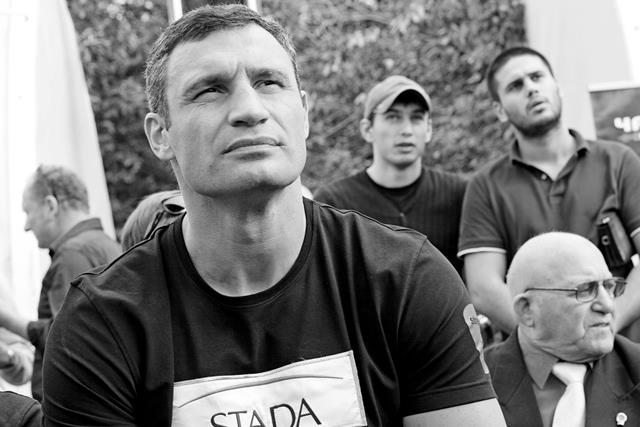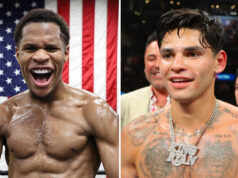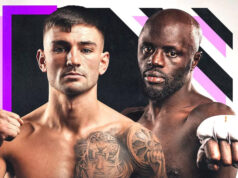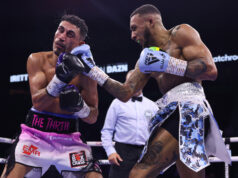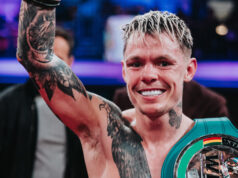Vitali Klitschko’s Retirement & What it Means for Heavyweight Boxing:
Vitali Klitschko has vacated his WBC belt, as he pursues the presidency of Ukraine. Now, not all roads run through a Klitschko, which should open up the division a bit, creating some different avenues. The WBC will soon crown a new ruler, with Vitali designated as “champion emeritus,” meaning a title shot will be his for the asking should he ever return.
Before even delving into the different possibilities, it’s fair to ask if we should even give a crap? With the sanctioning body madness now utterly unhinged, do these organizations even deserve recognition and extended coverage at this point? One couldn’t help but notice there were two different and separate WBA Light Heavyweight Title matches this past Saturday alone. How can that even be? Not to lump the WBC in with everyone, but when it comes to sanctioning body hi-jinx, the WBC has usually been a trendsetter.
Somehow the WBC kept Chris Arreola as its number-two contender, even after a fairly conclusive loss to Bermane Stiverne. That means after already winning a pair of elimination bouts, Stiverne now has to fight Arreola again. While that’s more desirable than just declaring “B-Ware” champion right now, Arreola shouldn’t even be in that spot. Again, we’re all dancing to the WBC’s off-key tune.
Ranking Arreola as their number-two contender even before, but especially after losing to Stiverne, is an indefensible position. Arreola is an exciting fighter and has made for some interesting moments, but what does it take to get him to drop down the WBC top-ten a little?
Then again, this is the same group that forever ranked Ray Austin at the top of its rankings, though no one else on this planet ever considered Austin more than a top-20 type of guy. Stiverne also beat Austin in 2011, in another “title eliminator” that never manifested into a title shot. The WBC has long been operating with this madness afoot. To give credit where it’s due, the WBC was ahead of the curve in identifying Stiverne as a top heavyweight, which he seems to be. Other than that, they really can’t get it right.
So let’s say we get Stiverne-Arreola II for the WBC belt. Stiverne, having won the first fight and a fresher commodity than Arreola, would perhaps lend more upside to the belt. At the same time, Stiverne is already 35 years old. Wladimir, running out of options, may take care of his brother’s unfinished business and win the only remaining relevant belt he doesn’t own. Or maybe Stiverne takes on the next highest-ranking contender in the promising Deontay Wilder. If Wilder wins, a distinct possibility, he will perhaps emerge as a compelling opponent for Wlad, a way for Klitschko to go out by beating a young lion.
To take it a step further, what if Wilder beat Wladimir? Could Vitali return to avenge his younger brother’s defeat? If he wins the presidency, that seems doubtful. We could have a rematch and a legitimate rivalry in the heavyweight division, something we haven’t seen in years. At the very least, Vitali vacating the title sets forth a sequence of events that could lend some drama to this division. With big brother reigning, there was no chance of anything interesting happening.
There is a chance this belt will fall into disarray, much like how the WBA title became irrelevant in the hands of Alexander Povetkin for a few years. It became a minor-league belt of sorts, with everyone knowing the brothers Klitschko were the two top dogs with Povetkin many miles behind. At some point, whoever wins the WBC belt will need to tangle with Wladimir to lend any legitimacy to the belt, unless Wlad retires and a new WBC titleholder manages to stand above the rest of the other “titleholders.”
Best case scenario, the WBC belt not being owned by Wladamir’s brother will expedite some better match-ups. Even the most ardent Klitschko apologists will attest to the ineptitude and anonymity of his recent challengers. From a relative sense, Stiverne and Wilder would be a step in the right direction. They’re at least dangerous fighters, though Stiverne certainly has his limitations and Wilder is unproven.
Beating Stiverne won’t really make Wladimir more of a champion. The best hope is that Wilder can notch a few good wins, upgrade his standing, and become a legitimate opponent for Wladimir. Anyway you want to slice it, the term “unification” doesn’t pack the punch it once did and the sanctioning bodies have no one but themselves to blame. They’ve created such an indecipherable mess that people have really tuned out and stopped caring.
As we delve more into the WBC heavyweight rankings, we see pretty good fighters like Bryant Jennings and Mike Perez also in the top-five. So whether Wladimir goes after this belt immediately or not, some interesting possibilities now exist where they didn’t before with Vitali as titleholder. We should see some good fighters in the ring, as a decent opponent for Wladimir emerges. In a heavyweight division so devoid of electricity, that’s a start.


